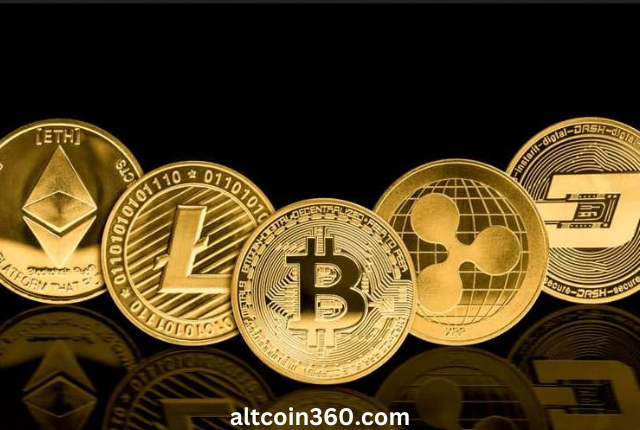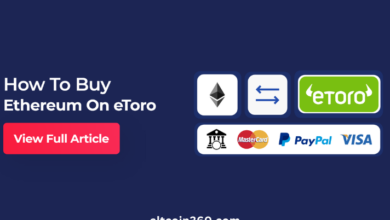Top 6 SEC Safe Coins: A Guide to Secure Cryptocurrency Investments

Introduction
The cryptocurrency market has grown exponentially over the past decade, attracting both seasoned investors and newcomers looking to capitalize on the digital gold rush. However, with the proliferation of cryptocurrencies, scams, and fraudulent projects, the need for secure and regulated investments has never been more critical.
The U.S. Securities and Exchange Commission (SEC) plays a crucial role in ensuring investor protection and enforcing securities laws. In this guide, we will explore the top 6 SEC safe coins, which are cryptocurrencies that have taken steps to comply with SEC regulations and offer a more secure investment option.
Bitcoin (BTC)
Bitcoin, often referred to as digital gold, is the first and most well-known cryptocurrency in the world. While Bitcoin itself is not regulated by the SEC, it has a unique position in the cryptocurrency space.
The SEC has declared Bitcoin to be a commodity, which means it is subject to regulation by the Commodity Futures Trading Commission (CFTC). This recognition provides a level of legitimacy and security for Bitcoin investors.
Additionally, Bitcoin is widely accepted by major financial institutions and has a strong track record of security and stability. Its decentralized nature and the immense amount of computational power securing its blockchain make it a relatively safe choice for long-term investors.
Ethereum (ETH)
Ethereum, often seen as the second most important cryptocurrency, is also in a unique position regarding SEC regulations. While Ethereum is not considered a security itself, its initial fundraising through an initial coin offering (ICO) led to discussions about its status as a security.
However, in 2018, the SEC’s director of corporate finance, William Hinman, stated that Ethereum is not considered a security due to its decentralized nature.
Ethereum has since played a significant role in the development of decentralized finance (DeFi) and non-fungible tokens (NFTs), making it a vital part of the cryptocurrency ecosystem. Its regulatory clarity and widespread adoption make it a relatively safe choice for investors.
Ripple (XRP)
Ripple and its native cryptocurrency XRP have faced regulatory challenges from the SEC. In December 2020, the SEC filed a lawsuit against Ripple Labs, alleging that XRP was a security and that Ripple had conducted an unregistered securities offering. This legal battle has resulted in a cloud of uncertainty surrounding XRP’s status.
Despite these challenges, Ripple has a large user base and partnerships with financial institutions. It’s important to note that XRP’s status remains in flux, and investors should carefully monitor the outcome of the SEC lawsuit before considering an investment in XRP.
Stellar (XLM)
Stellar is a cryptocurrency platform designed to facilitate cross-border payments and digital asset issuance. While it shares some similarities with Ripple, Stellar has taken proactive steps to comply with SEC regulations.
In 2019, Stellar Development Foundation (SDF) received a no-action letter from the SEC, indicating that the SEC had no objection to the distribution of Lumens (XLM) as long as certain conditions were met.
This no-action letter provides a level of regulatory certainty for Stellar and its native cryptocurrency, XLM. Stellar’s focus on facilitating payments and its commitment to regulatory compliance make it a relatively safe choice for investors interested in the cross-border payments sector.
Algorand (ALGO)
Algorand is a blockchain platform known for its focus on scalability, security, and speed. Algorand Corporation, the company behind the Algorand network, has worked to ensure regulatory compliance.
In 2019, the Algorand Foundation received a no-action letter from the SEC regarding the sale of ALGO tokens. This letter confirmed that the SEC had no objections to the sale of ALGO tokens as long as certain conditions were met.
The regulatory clarity provided by the SEC’s no-action letter adds credibility to Algorand and its native cryptocurrency, ALGO. Algorand’s advanced technology and commitment to regulatory compliance make it an interesting option for investors seeking a secure blockchain platform.
Filecoin (FIL)
Filecoin is a decentralized storage network designed to provide a secure and efficient way to store and retrieve data. The Filecoin Foundation, which oversees the development of the Filecoin network, has been actively engaged in regulatory compliance efforts.
While Filecoin’s native cryptocurrency, FIL, wasn’t initially launched as a security, the Filecoin Foundation has taken steps to address regulatory concerns.
Investors in Filecoin can take some comfort in the foundation’s commitment to regulatory compliance and the network’s unique value proposition within the cryptocurrency space.
Conclusion
Investing in cryptocurrencies can be a lucrative but risky endeavor. To minimize risk and ensure the safety of your investments, it’s crucial to consider cryptocurrencies that have taken steps to comply with SEC regulations.
The top 6 SEC safe coins mentioned in this guide—Bitcoin, Ethereum, Stellar, Algorand, Ripple (with a caveat), and Filecoin—have varying degrees of regulatory clarity and compliance.
However, it’s important to note that the regulatory landscape for cryptocurrencies is continually evolving, and legal challenges can arise.
Therefore, before investing in any cryptocurrency, it’s advisable to conduct thorough research, consult with financial experts, and stay informed about the latest regulatory developments.
Diversifying your portfolio and practicing responsible investing strategies remain essential, regardless of the specific cryptocurrency you choose to invest in.




